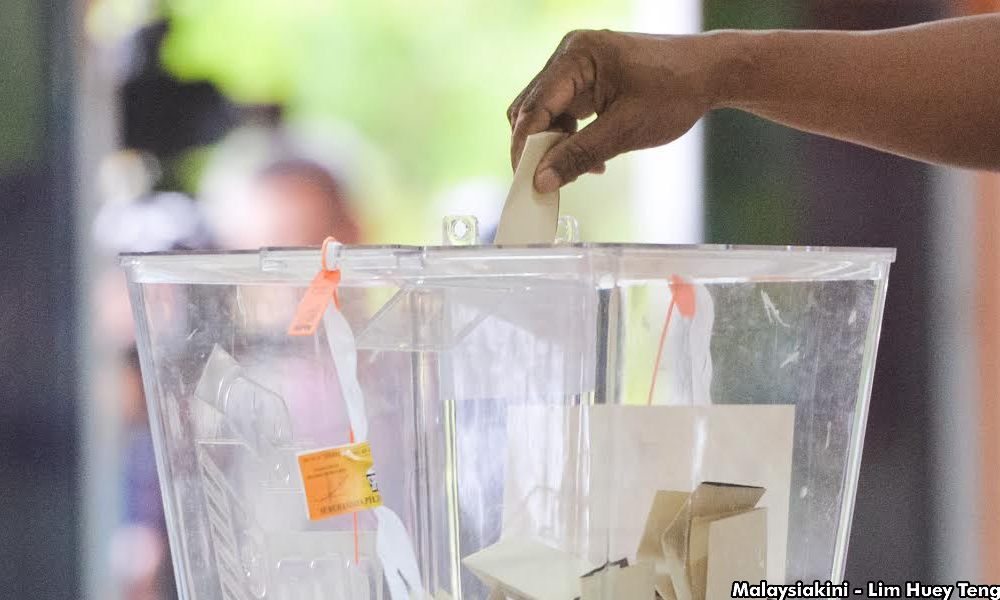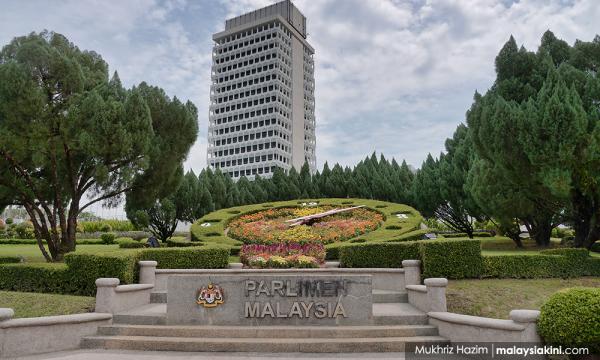COMMENT | For the past few months, the Centre for Governance and Political Studies (Cent-GPS) has been working closely with the bipartisan parliamentary caucus on anti-party-hopping, led by Nazri Abdul Aziz.
During this time, we have held several public roundtables, consultations with legal firms, consultations with international academic bodies and even ran a nationwide survey. Today, we are releasing the findings of this lengthy report to the public. The conclusions of this report are highlighted below.
Since GE14 in 2018, over 40 Dewan Rakyat MPs have changed their party allegiances (around 20 percent of all MPs). At the state level, Johor, Malacca, Kedah and Perak have changed state leaderships due to party-hopping.
This means a drastic change in the style of governance, change in policy, change in direction and priorities. It has a direct impact on the livelihoods of people on the ground. From jobs to government assistance and even mega-state projects.
In our nationwide survey, a total of 1,109 respondents across the country participated. A total of 14 percent were aged 16-20 years old, 57 percent were aged 21-30, 11 percent were aged 31-40, nine percent were aged 41-50, six percent were aged 51-60 and two percent were aged above 60. Respondents were interviewed in their own language of preference. Here are some of the key findings of the nationwide survey:
● When asked whether they had lost interest in politics due to party hopping, 46 percent said yes, 36 percent said somewhat, 18 percent said no.
● When asked whether the current political crisis is a result of MPs hopping, 53 percent said yes, 37 percent said maybe, 10 percent said no.
● When asked whether Malaysia should implement an anti-hopping law, 50 percent said yes, 37 percent said maybe, 12 percent said no.
● When asked what sort of punishment must be imposed on party hoppers, 43 percent said the MP should be disallowed to contest future elections. A total of 34 percent believe the MP should immediately lose his seat, 14 percent say a fine should be imposed and eight percent say the MP should be jailed.
In proposing a legal solution, Cent-GPS prioritised two key considerations. The first is a fear that any law against party-hopping may be a “slippery slope” for democracy in Malaysia as it impedes one’s freedom of association.
The other consideration is the economy; changes in party affiliation can change a government, especially now. This means instability, uncertainty and a potential change in national direction. We have already seen how this leads to lower foreign direct investment and overall loss of high skill jobs in Malaysia.
With these parameters in mind, we propose a recall election system. This solution is less drastic than the second. A recall election is an approach where voters can end an elected official’s period of office by petitioning 10 percent of voters, asking for a re-election. The process is likely to take six months, inclusive of the by-election.
The shortfall of this option is that a six-month period to collect signatures and to decide on a by-election will not address a government change. Yes, it is a heavy deterrent for any MP intending to jump. But there is a grey area during this transition period on what that MP can do. Can that MP support a new coalition in time for a new government to be formed?
Six months is a long time. While it is entirely democratic, we will likely still face a government change due to party-hopping, regardless of this process. Moreover, even if the process succeeds and there is a by-election, we are still faced with the process of covering for an expensive by-election, one that will also take away the focus of leaders, as well as provide insecurity for investors in Malaysia.

If an MP jumps in January and a by-election is decided in June, we lose six months, two business quarters, to uncertainty. This will have severe economic concerns.
No policy-based identity
The second solution is more drastic- a party list system. This means when a party is contesting in a general election, the party will provide three names that could represent the constituency in Parliament for the five-year term.
Should the first representative die, decide to "hop" or change allegiance after winning the seat, the second name on the list will automatically become the Member of Parliament for the constituency.
This eliminates the bargaining power of a parliamentary seat. It ensures that a government elected after a general election remains for the next five years, unless the party on a whole decides to support a different coalition.
It deeply emphasises stability and avoids expensive by-elections. This can be done by amending the current Election Act without amending Article 10 of the Federal Constitution (this step-by-step legal process is further detailed in our report).
However, by implementing a party list system, party leaders become more powerful. The impact will be that Members of Parliament would not be able to protest their leaders’ decisions in any policy.
With guaranteed membership throughout a term, leaders may take for granted their members’ opinions. But MPs can still vote differently during parliamentary sittings.
On the other side of the coin, party leaders will have to worry less about constantly losing support, thereby giving more time for leaders to focus on implementing long term, high impact, unpopular but necessary policies.
Keeping MPs in their original parties and restricting party-hopping would prevent big parties from gaining or winning a majority to form the government by seducing members from smaller parties. This would ultimately reduce corruption.
The solutions provided here and the analysis from the report are again focused on economic stability as well as democratic freedoms. There are other aspects to consider as well.
This is not a final-stop solution to party-hopping. Indeed, the issue is a deeply rooted one. One could even argue that an anti-party-hopping law would not restrict MPs from jumping and fighting one another if political parties don’t have a true identity.
In other words, it may be easy for politicians to switch parties today because there is no real policy-based identity behind our political parties in Malaysia.
Depending on the reader, one may have different priorities. Someone from a low-income community may value economic stability and jobs as the more urgent outcome.
Someone who values democratic freedoms may see recall elections as the better safer option. This report also accepts mixed solutions, such as implementing a party-list system but having it restricted to 2030 only.
The Centre for Governance and Political Studies (Cent-GPS) is a KL based political science and social behavioural research firm.
The views expressed here are those of the author/contributor and do not necessarily represent the views of Malaysiakini.


